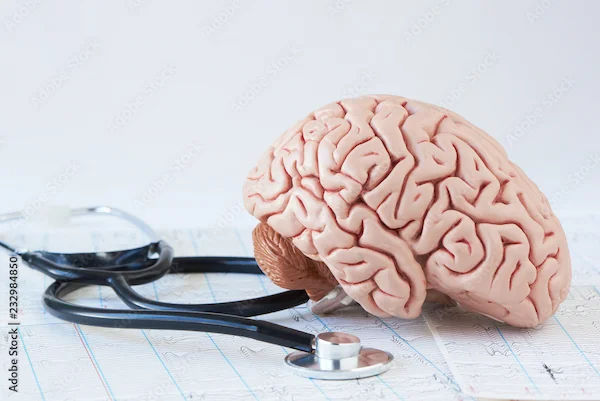Brain Problem Solving In Sleep: Unlocking The Power Of Your Subconscious
Discover how the brain solves problems during sleep and unlocks the power of your subconscious mind. Learn how sleep can aid creativity and problem-solving.

Written by Dr.Sonia Bhatt
Last updated on 3rd Jul, 2025

Introduction
Sleep is often seen as a time for the body to rest and rejuvenate, but what if we told you that your brain is actively working while you sleep? In fact, sleep plays a crucial role in problem-solving, memory consolidation, and fostering creativity. Understanding how the brain works during sleep can empower you to harness its full cognitive potential. In this article, we’ll explore how sleep contributes to problem-solving, creativity, and cognitive function, the science behind these processes, and tips for improving your sleep quality to boost your brain health.
The Science Behind Sleep and Problem Solving
Sleep is far from a passive state. In fact, it's a dynamic process where various brain regions are active and engaged in consolidating memories, processing emotions, and solving problems. While much of our waking hours are spent trying to solve problems, sleep is often when the brain works most effectively to find solutions.
There are two main stages of sleep that significantly impact cognitive function: Rapid Eye Movement (REM) sleep and Non-Rapid Eye Movement (NREM) sleep. Both stages are essential for problem-solving, but they serve different functions.
1. REM Sleep
Characteristics: REM sleep is the stage where most vivid dreaming occurs. It is characterised by rapid eye movements, increased brain activity, and temporary muscle paralysis.
Role in Problem Solving: During REM sleep, the brain consolidates memories and processes information from the day. This consolidation helps to strengthen neural connections and integrate new information with existing knowledge. REM sleep is also associated with creative problem-solving, as the brain makes connections between seemingly unrelated pieces of information.
2. Non-REM Sleep
Characteristics: Non-REM sleep consists of three stages, ranging from light sleep to deep sleep. It is a period of slower brain activity and physical relaxation.
Role in Problem Solving: Non-REM sleep is crucial for physical restoration and memory consolidation. During deep sleep (the third stage of non-REM sleep), the brain processes and organises information, which can lead to insights and solutions to problems.
How the Brain Solves Problems During Sleep
While we sleep, our brains don't shut down. Instead, it becomes highly active, engaging in processes that help solve problems, enhance memory, and promote emotional well-being. These activities contribute to creative insights, better decision-making, and the ability to approach challenges with a fresh perspective.
Memory Consolidation
During sleep, particularly during REM sleep, the brain consolidates memories and processes information from the day. This consolidation helps to strengthen neural connections and integrate new information with existing knowledge. This process can lead to insights and solutions to problems that were not apparent while awake.
Creative Problem Solving
Sleep allows the brain to make connections between seemingly unrelated pieces of information. The prefrontal cortex, which is responsible for logical thinking and decision-making, becomes less active during sleep. This reduction in activity allows the brain to explore more creative and less obvious solutions to problems.
Emotional Processing
The brain also processes emotions during sleep, particularly during REM sleep. This emotional processing can help to reduce stress and anxiety, which can in turn improve problem-solving abilities. By processing emotions, the brain can approach problems with a clearer and more focused mindset.
The Role of Dreams in Problem Solving
Dreams have long intrigued researchers and laypeople alike, with many wondering about their purpose and significance. While the full function of dreams remains elusive, emerging evidence suggests that they play a crucial role in problem-solving, memory consolidation, and emotional regulation. During sleep, the brain remains active, processing information from the day, and dreams may provide an opportunity for the mind to work through unresolved issues or explore creative solutions to problems.
Dream Incubation
Dream incubation is a technique in which an individual consciously focuses on a specific problem or question before sleep, with the hope that the subconscious mind will offer insights during the dreaming process. By intentionally directing attention to a challenge, individuals may enhance their ability to access new perspectives and potential solutions while in the dream state. This technique can help facilitate novel problem-solving and bring clarity to difficult decisions.
Lucid Dreaming
Lucid dreaming refers to a state where the dreamer becomes aware that they are dreaming and may gain some control over the dream's content. This unique awareness can provide a valuable opportunity to consciously explore creative solutions, practice skills, or rehearse problem-solving scenarios in a safe, controlled environment. Many lucid dreamers intentionally use this state to experiment with different solutions to real-life challenges, gaining fresh insights that they may not have considered while awake.
Case Studies and Research
Several studies have demonstrated the power of sleep in enhancing problem-solving abilities:
The Tetris Effect: In a study conducted by Harvard Medical School, participants who played the video game Tetris before bed reported dreaming about the game. These dreams were associated with improved performance and problem-solving abilities in the game.
The Remote Associates Test: Researchers at the University of California, San Diego, found that participants who took a nap after working on the Remote Associates Test (a test of creative problem-solving) performed better than those who stayed awake. The improvement was particularly significant for those who entered REM sleep during their nap.
The Insight Problem-Solving Study: A study published in the journal Nature found that participants who slept after working on a difficult problem were more likely to solve it compared to those who stayed awake. The researchers concluded that sleep facilitates the restructuring of information, leading to new insights and solutions.
Improving Sleep Quality for Better Cognitive Function
Considering how deeply sleep affects problem-solving, memory, and cognitive performance, it’s crucial to make sleep a priority. Here are some simple yet effective tips to improve your sleep and give your brain the rest it needs to function at its best:
Prioritise Consistent Sleep
Aim for 7-9 hours of sleep each night, and try to maintain a consistent sleep schedule. Going to bed and waking up at the same time every day helps regulate your body's internal clock, making it easier to fall asleep and wake up refreshed.
Create a Sleep-Friendly Environment
Make your bedroom a peaceful sanctuary. Keep it cool, dark, and quiet, and invest in a comfortable mattress and pillows. Limiting screen time before bed can also help reduce blue light exposure, which can interfere with your ability to fall asleep.
Establish a Relaxing Pre-Sleep Routine
Engage in calming activities before bed, such as reading, taking a warm bath, or practising relaxation techniques like meditation or deep breathing. This helps signal to your brain that it’s time to wind down and prepare for rest.
Limit Caffeine and Alcohol
Both caffeine and alcohol can disrupt sleep quality, so it’s best to avoid them several hours before bedtime. Caffeine is a stimulant, and alcohol can interfere with the deeper stages of sleep, including REM sleep.
Exercise Regularly
Regular physical activity can help you fall asleep faster and experience deeper, more restorative sleep. Just make sure to avoid intense exercise close to bedtime, as it may be too stimulating.
Manage Stress
Chronic stress can negatively impact sleep quality. Incorporating stress management techniques, such as mindfulness or journaling, can help reduce anxiety and promote better sleep.
Conclusion
Sleep is a powerful tool for enhancing problem-solving abilities and creativity. By understanding the role of sleep in memory consolidation, emotional processing, and creative thinking, you can harness the power of your subconscious mind to tackle challenges and find innovative solutions. Implementing practical tips for improving sleep quality and using techniques like dream incubation and lucid dreaming can further enhance your problem-solving skills.
Remember, getting enough quality sleep is essential for overall health and well-being. So, prioritise your sleep and let your brain work its magic while you rest.
Consult Top Sleep Medicine Specialist
Consult Top Sleep Medicine Specialist

Dr. Suresh G
General Physician/ Internal Medicine Specialist
25 Years • MBBS, MD
Bangalore
Apollo Clinic Bellandur, Bangalore
(225+ Patients)

Dr. Shiba Kalyan Biswal
Pulmonology Respiratory Medicine Specialist
18 Years • MBBS,MD,DM(AIIMS Delhi)
Gurugram
APOLLO SUGAR CLINICS GURUGRAM, Gurugram

Dr. Shirish Shelke
Ent Specialist
17 Years • MBBS, DLO, DORL, DNB (ENT)
Pune
Apollo Clinic, Viman Nagar, Pune
(25+ Patients)

Dr Helan Rajan
Ent Covid Consult
5 Years • MBBS MS ENT
Pune
Apollo Clinic, Nigdi, Pune
Dr Srinivas Rajagopala
Pulmonology Respiratory Medicine Specialist
20 Years • MBBS, MD (Int Med), DM (Pul & Crit Care), Fellowship in Lung Transplantation (Toronto)
Chennai
Apollo Cancer Speciality Hospital, Teynampet, Chennai




